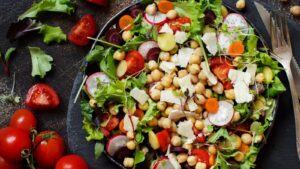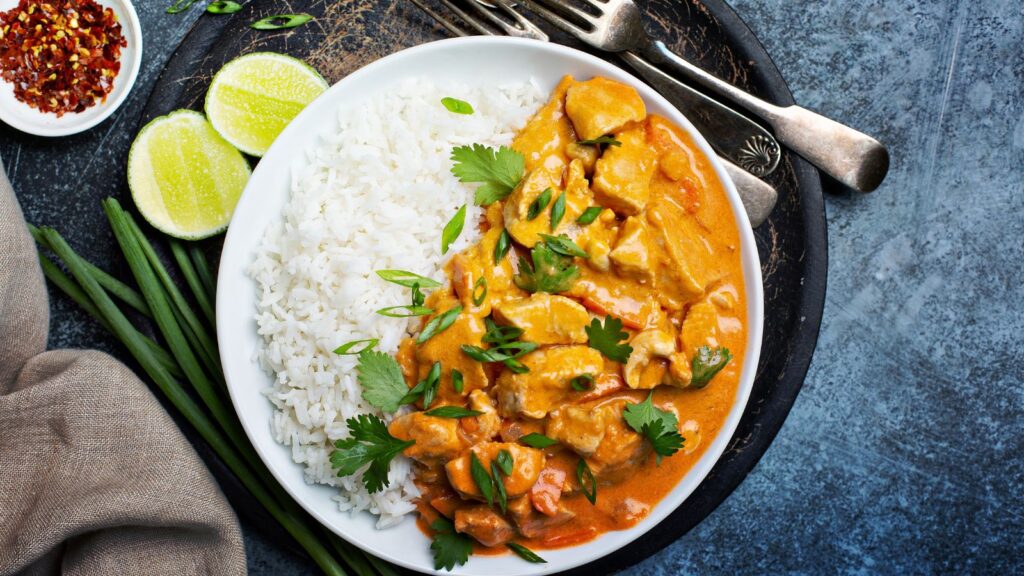In today’s fast-paced world, the kitchen is more than just a place to whip up a meal—it’s a hub for sustainable living. As people become more conscious of their environmental footprints, sustainable cooking has emerged as a deliciously responsible way to nourish both body and planet. By embracing recipes that focus on local, seasonal, and plant-based ingredients, home cooks can make a significant impact on reducing waste and conserving resources.
Sustainable cooking isn’t just about the ingredients, though; it’s also about the methods and techniques that minimize energy use and maximize flavor. From clever ways to repurpose leftovers to choosing energy-efficient appliances, each step in the cooking process can contribute to a more sustainable lifestyle. As more people discover the joys of sustainable cooking, it’s clear that every meal can be a step toward a healthier planet.
Sustainable Cooking Recipes
 Sustainable cooking recipes offer numerous environmental and health benefits. First, they promote reduced carbon emissions by encouraging the use of local and seasonal ingredients. Sourcing produce locally lessens the environmental impact of transportation and storage. Second, these recipes decrease waste through portion control and by repurposing food scraps, which aligns with zero-waste practices. Third, they enhance nutrition by focusing on whole, plant-based foods that are rich in essential nutrients and free from harmful chemicals often found in processed options.
Sustainable cooking recipes offer numerous environmental and health benefits. First, they promote reduced carbon emissions by encouraging the use of local and seasonal ingredients. Sourcing produce locally lessens the environmental impact of transportation and storage. Second, these recipes decrease waste through portion control and by repurposing food scraps, which aligns with zero-waste practices. Third, they enhance nutrition by focusing on whole, plant-based foods that are rich in essential nutrients and free from harmful chemicals often found in processed options.
Economic benefits also arise from sustainable cooking. Individuals save money by using ingredients in season that are typically less expensive. Additionally, by minimizing waste and increasing food utilization, overall grocery expenses decrease. Community support strengthens when consumers purchase from local farmers and suppliers, helping bolster local economies and fostering stronger community ties.
Key Ingredients For Sustainable Recipes
In sustainable cooking, selecting the right ingredients is essential. Local produce plays a crucial role; choosing fruits and vegetables from nearby farms reduces transportation emissions and supports community farmers. Seasonal ingredients enhance flavor and require fewer resources to grow compared to off-season produce.
Plant-based proteins, such as lentils, chickpeas, and tofu, offer an eco-friendly alternative to meat. They provide essential nutrients while having a lower environmental impact. Grains like quinoa and barley are versatile and contribute to a balanced diet.
Herbs and spices grown sustainably can add depth to dishes without relying on processed additives. Purchasing these in bulk reduces packaging waste and ensures longer shelf life.
Finally, choosing organic options whenever possible fosters biodiversity and reduces pollution from synthetic pesticides and fertilizers. Organic farming practices contribute positively to soil health and water quality.
By integrating these key ingredients, recipes become more sustainable while maintaining culinary richness and diversity.
Popular Sustainable Cooking Recipes
Vegetable Stir-Fry utilizes fresh, seasonal vegetables like bell peppers and broccoli. A plant-based protein such as tofu or tempeh adds depth. Stir-frying in a small amount of oil preserves nutrients, minimizing energy use by cooking on a high flame for a short time.
Lentil Soup provides essential nutrients and warmth. Lentils, rich in protein and fiber, combine with local, seasonal vegetables for a hearty dish. Using a pressure cooker reduces cooking time, conserving energy.
Chickpea Salad features protein-rich chickpeas with fresh herbs and locally sourced tomatoes and cucumbers. A drizzle of olive oil and lemon juice enhances flavor without excess energy use in preparation.
Vegetable Curry embraces sustainably grown spices and local produce. Potatoes or carrots provide a base, while plant-based milk like coconut cream adds richness. Simmering spices release flavors, efficiently using energy.
These recipes focus on sustainability by maximizing local, seasonal ingredients and employing energy-efficient methods that align with eco-conscious cooking practices.
Zero-Waste Recipes
Sustainable cooking offers a pathway to a more eco-friendly lifestyle by embracing zero-waste recipes. These recipes prioritize using every part of the ingredient, from root to leaf, ensuring nothing goes to waste. By creatively repurposing food scraps into broths or garnishes, individuals can significantly reduce their kitchen waste. This approach not only supports environmental goals but also inspires culinary creativity and innovation. Sustainable cooking encourages a mindful approach to food preparation, where every ingredient is valued for its potential. By adopting these practices, anyone can contribute to a healthier planet while enjoying flavorful and nutritious meals.

